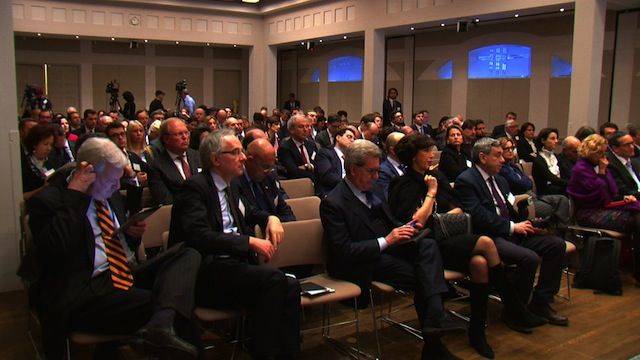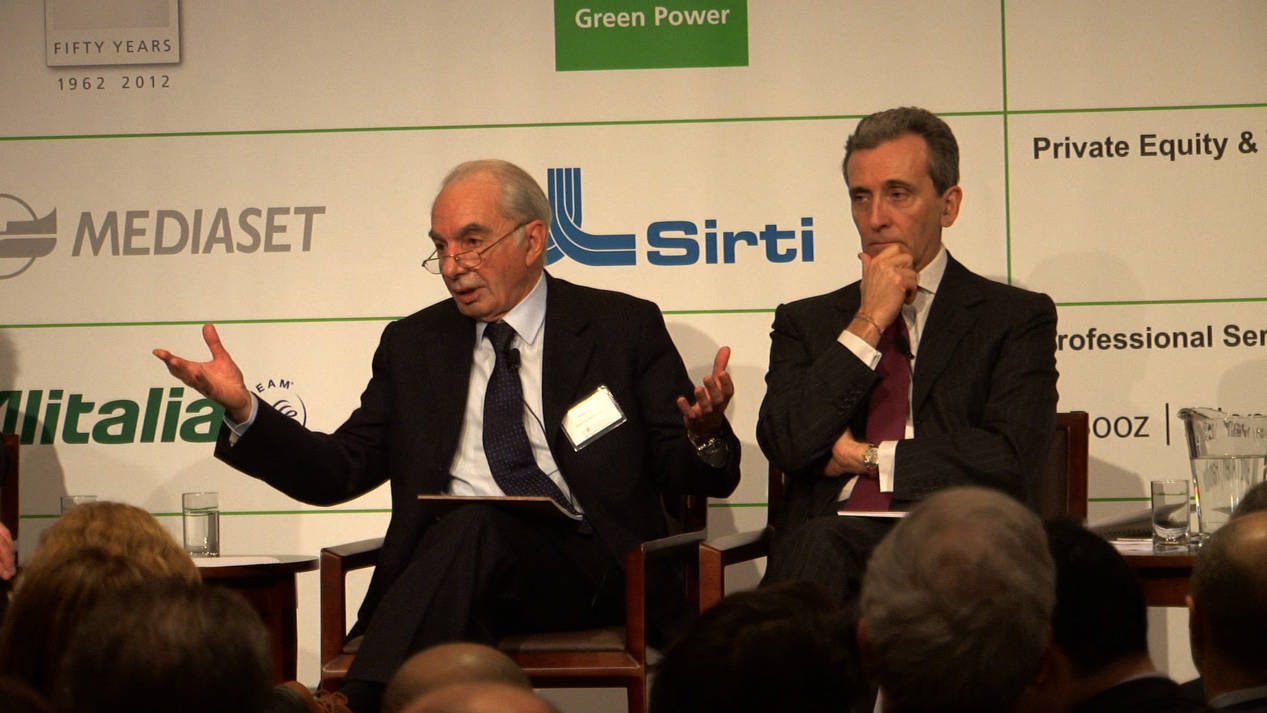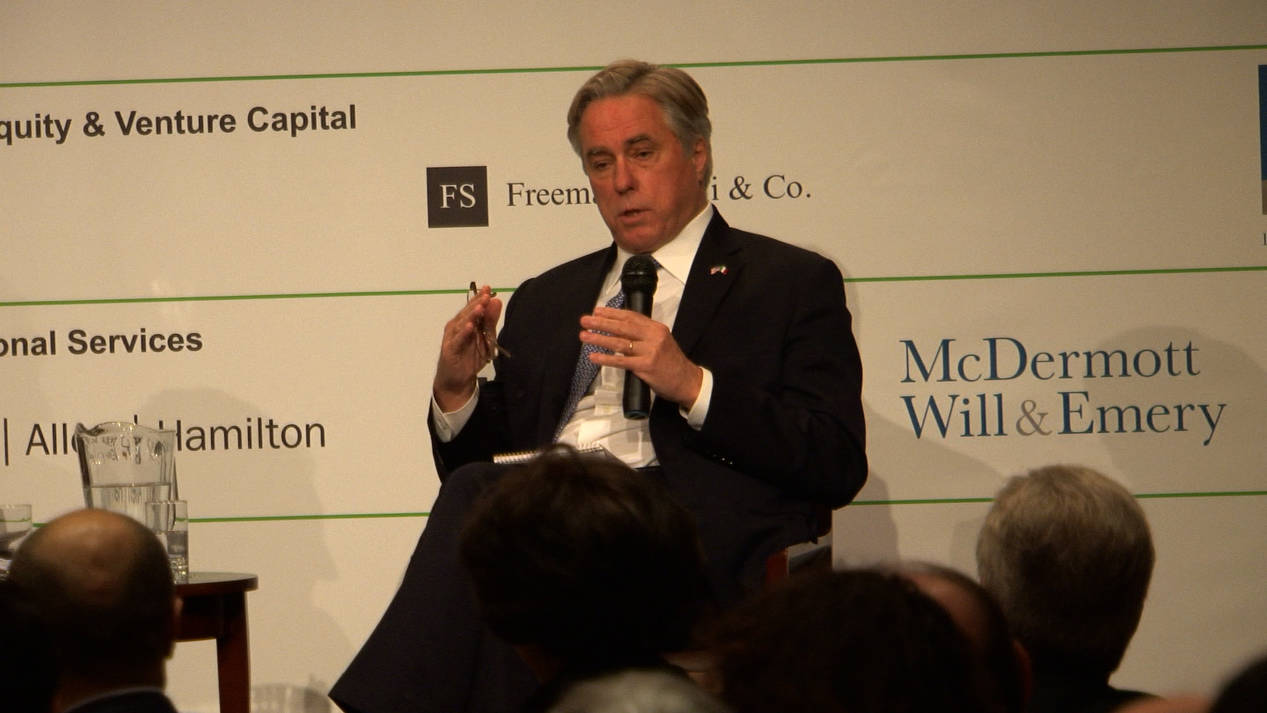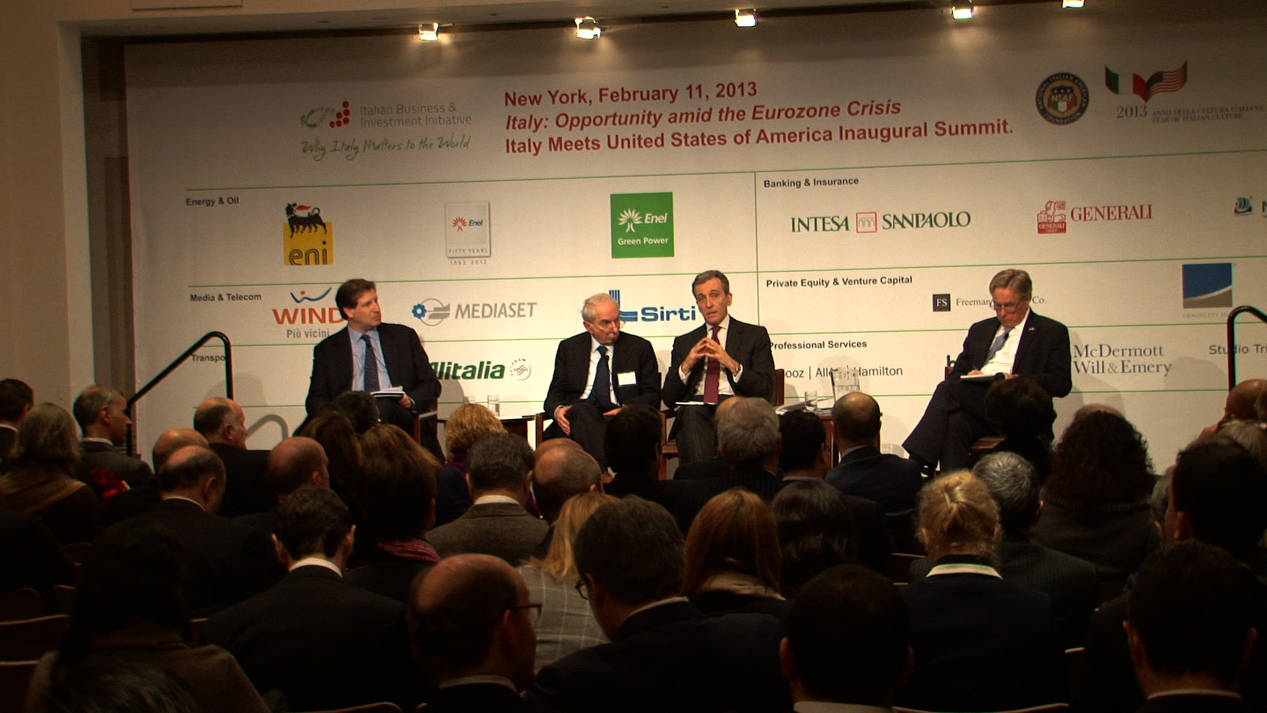Politicians and Italian CEOs Express Optimism At Inaugural Italy - US Summit
During the inaugural Italy-US summit held on February 11, 2013, former Prime Minister Giuliano Amato and Vittorio Grilli, the Italian Minister of Economy and Finance since July 2012 were positive about Italy’s future, noting that reforms had made big inroads in the past few years.
Mario Monti’s government instituted reforms in a number of areas including constitutional reforms on a balanced budget provision, a spending review of public expenditures, legislation to combat tax evasion and tax avoidance, fiscal simplification and fiscal reforms, tightening of the eligibility requirements for old-age retirement, and measures to reduce public debt, among others.
The CEOs of major Italian firms – Enel (Fulvio Conti), Eni (Paolo Scaroni), Alitalia (Andrea Ragnetti) and Wind (Maximo Ibarra) also expressed optimism about the future of their country despite impending elections and a lingering debt crisis. The event was held at the Council on Foreign Relations and moderated by Gideon Rose, Editor of Foreign Affairs. Entitled “Opportunity amid the Eurozone Crisis,” the participants outlined their views of the current economic scenario for their particular company and their opinions on what Italy needs to move forward.
Held two weeks before the Italian elections and the day of Pope Benedict’s resignation, Italy was already on many people’s mind. The Italian elections will take place on February 24-25, 2013.
At this moment it is unclear if the left led by Luigi Bersani will be able to garner enough votes together with Mario Monti’s party or if Silvio Berlusconi will once again grasp enough votes to lead the country.
Internationally the idea of another Berlusconi mandate seems impossible to fathom but Il Cavaliere has risen from the ashes in the past. Recent allegations of scandals surrounding Italy’s oldest bank, Monte dei Paschi di Siena and the political parties of the left make this growing rumor a possibility.
The markets are nervous ahead of the elections because many reforms have been undertaken and the fear is that a new Berlusconi government will overturn them. Berlusconi is also threatening to leave the Euro. In fact, Brussels is also waiting the Italian elections very closely as a sign of what may happen in other countries as well, if a government hostile to reforms and Europe comes into office.
The general view at the meeting was that much had been done during Prime Minister Mario Monti’s term but that the road is still long to make Italy an attractive place for investment. The meeting was held in part to discuss the current climate in Italy and in part to dispel incorrect beliefs about the state of the Italian economy.
David H. Thorne, USA Ambassador to Italy touched on themes of what makes the US-Italy relationship enduring and fundamental and commented on what reforms have been taken to address pressing issues. He stated the need for judicial reforms and the simplification of bureaucracy, stating that Italy ranks 73rd out of 185 countries in the Doing Business 2013 data produced by the International Finance Corporation and the World Bank, a striking figure.
On the positive side of the Italian balance sheet is the fact that Italian exports are central to their economy and that they have hundreds of products that are exported and many more that can be exported. Additionally, Italian households tend to have little personal debt and high per capita net worth.
The CEOs commented on the inflexibility of the labor market as being a considerable problem as well as the need for education and training. The four companies that were present during the summit are one piece of the Italian economy but small and medium size family run enterprises are the backbone of the Italian economy. These firms often have a different set of problems than their larger global counterparts, usually involving their inability to get credit from banks and being too small to export goods to grow their businesses.
One thing that small and large Italian companies have in common is the need to export. Demand at home alone cannot support growth. Executives on the panel were of the same mind that smaller firms need to scale up in order to compete. Family-run firms also need more managerial resources. In most cases, firms are run by the second generation of the family that may or may not have formal managerial training.
A number of sectors that could be drivers of an Italian resurgence were outlined by the Italian Business & Investment Initiative (IBII), the organizers of the event, including high-tech zones, arts & culture and machine tools.
Italian Minister Grilli noted that further privatizations would take place that should help the economy as well as private-public partnerships. IBII noted that there are also a growing number of private equity and venture capital funds that are active in Italy, further signs that the economy is looking more attractive to investors.
Former Prime Minister Amato also reminded the audience of the inescapable factor of changing demographics. He suggested Italy should embrace better immigration policies so that the social safety net continues into the future.
While no policy proposals were launched that day, the conversation about the state of the Italian economy for US investors was on everyone’s lips. A far cry and a welcome change from thinking about Italy only as a place of “pizza, pasta, mafia and mandolins.”





































i-Italy
Facebook
Google+
This work may not be reproduced, in whole or in part, without prior written permission.
Questo lavoro non può essere riprodotto, in tutto o in parte, senza permesso scritto.